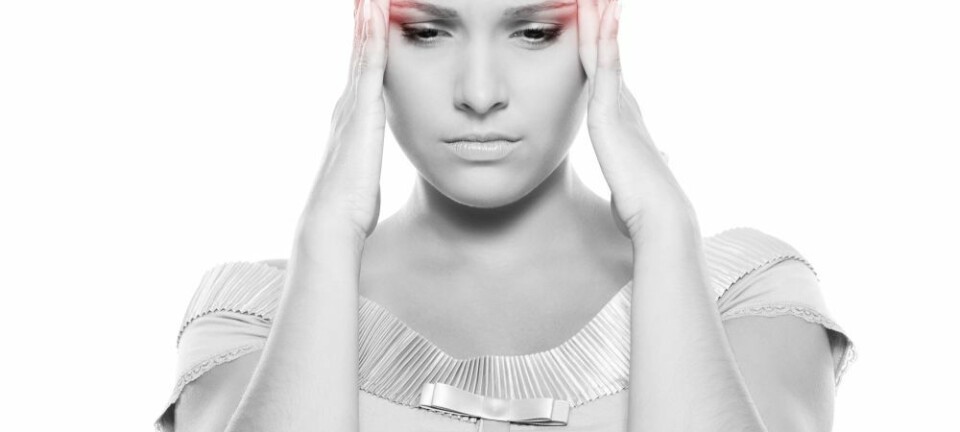
Scientists set world record in giving patients migraine
A team of Danish scientists are getting close to finding the cause of migraines. Discovery could lead to better treatment.
Migraine is an extremely hurtful, sometimes debilitating headache that affects some 15 per cent of the population.
Scientists still don’t know which mechanism or mechanisms in the body provoke the attacks but a team of Danish doctors are getting closer after succeeding in provoking migraine attacks in far more patients than previously possible.
By increasing the amount of the naturally occurring substance cyclic AMP (cAMP), the researchers gave as many as 86 per cent of their experiment participants migraine, which is far more than using other substances used in earlier studies.
"It's extremely exciting and provides new insight into migraine," says the senior researcher behind the study, Professor Messoud Ashina of the Department of Neurology of the Danish Headache Centre at Glostrup University Hospital and the Department of Clinical Medicine at the University of Copenhagen.
However, more studies are needed before it makes sense to start developing medicines to reduce concentrations of cAMP, believes Helge Kasch, associate professor at the Department of Clinical Medicine at Aarhus University and consultant physician at Aarhus University Hospital.
"This is an impressive result because it shows a greater effect than previously. This sets the stage for the need for more research in this direction," says Kasch.
Substance provokes major headaches
The study points out that the substance cAMP may play a significant role in causing migraine and that by regulating concentrations of the substance it could be possible to treat or prevent some patients' migraine attacks.
"The substance cAMP, which the body uses to dilate the blood vessels, could apparently cause migraine in the vast majority of patients -- if the concentration is high enough,” says Ashina. “So we also hope that a medicine that reduce concentrations before or during a migraine may be able to prevent or curb the attack. That’s what we’re about to investigate.”
The study, which was recently published in the scientific journal Brain, is in tune with several other Danish studies that suggest dilation of the blood vessels in the brain are involved in provoking migraine headaches.
Could give new insight into cause of migraines
The scientists from the Headache Centre at Glostrup gave 14 migraine patients either a tablet of cilostazol, which increases the concentration of cAMP in the body, or a placebo. The patients were kept under observation for a short time at the clinic and then sent home where they were to record whether or not they had a headache.
The next time the researchers met with the participants they were given the opposite pill. In this way, the participants tried both pills, but on different days.
The survey was designed as a double blinded study so neither the patients nor the scientists knew who had been given what and when until the study had been completed.
The results showed that 86 per cent of the patients -- 12 out of 14 -- got a headache after taking cilostazol. And after approximately six hours, the headache developed into a migraine attack similar to those the patients normally experienced.
In most cases, the participants' attacks could be treated with their normal migraine medicine, indicating that what they had experienced was an actual migraine attack.
When the 14 patients were given the placebo pill, only two of them had a migraine attack.
"Provoking a migraine attack gives us insight into which transmitter substances and transmission routes provoke a migraine attack,” says Ashina. “And greater knowledge of the causality of migraines will perhaps enable us to develop medical treatments which block and prevent attacks. So we hope the result can pave the way for a new medicine.”
Other studies must show what happens in the brain
Kasch points out the study is very small and that further research is needed “in order to confirm the otherwise promising result”.
"Then we can start developing and testing medicines which can prevent the build-up of cAMP in the tissue in order to see if this will curb or prevent migraine attacks," he says.
Migraine attacks are usually similar from one patient to another. However, the mechanisms that provoke migraine attacks can be very different, says Ashina.
"It would seem that both foods, medicines, and alcohol can provoke a migraine attack. But this differs from one patient to another,” he says. “So it’s interesting to find and identify the mechanisms in the body that might cause migraines -- and here it seems that cAMP may play a significant role."
--------------
Read the original story in Danish on Videnskab.dk
Translated by: Hugh Matthews











